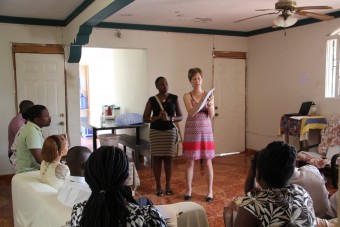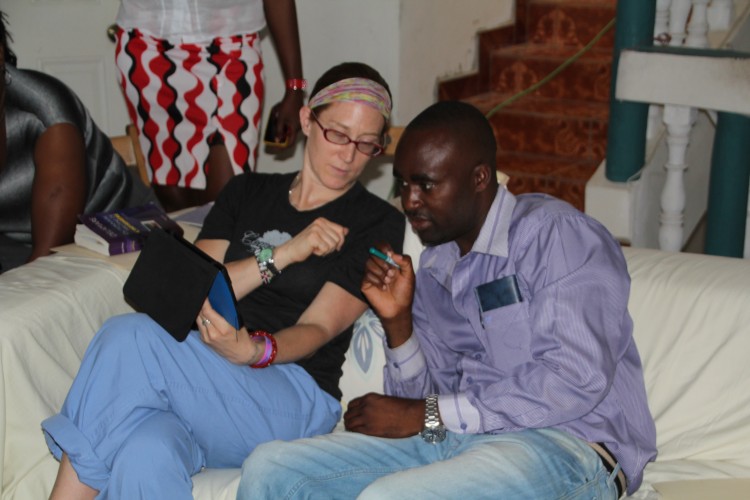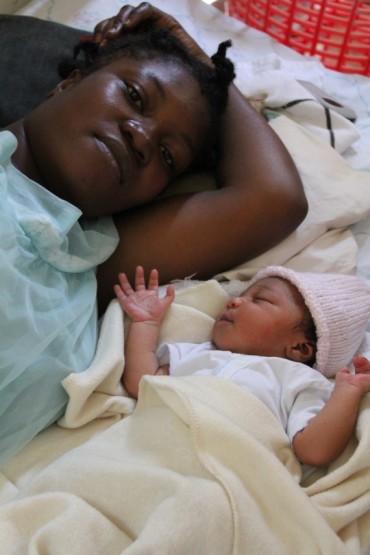
Is cervical cancer the next biggest health risk for women?
Dr. Leslee Jaeger, an OB/GYN in Minneapolis and a DFW chapter leader, recently returned from a medical training trip to MamaBaby Haiti. There she taught clinic staff how to screen for cervical cancer. She wrote this article about her concerns of the growing risks of cervical cancer for women in the developing world.

By Dr. Leslee Jaeger
Minneapolis, MN
Roseline had delivered her baby during the chaos of our first day at Mama Baby Haiti, a birthing center for women near Cap Haitien, Haiti. Mondays are the busiest day at the center, as it is the intake day for expectant mothers that are new to the program. Three of us had arrived the night before from the early spring of Minnesota weather to be greeted by unseasonable warm Haitian weather – 95 degrees and high humidity. While we were teaching 10 Haitian nurses and physicians about cervical cancer screening in a low resource setting, Roseline was laboring with the aide of a Haitian trained nurse midwife to deliver her healthy baby girl. She graciously agreed to be interviewed only hours after the birth of her child and shortly before she was to depart for her home (patients stay at the center for only four hours after an uncomplicated birth).
As is true for many of the 30-40 women who deliver at Mama Baby Haiti each month, she had heard of the program thru a friend. She lived 20 minutes away and had been seen for 5 prenatal visits. She was appreciative of the nurse midwives who seemed to listen to her

Mama Baby Haiti, along with other other women’s health organizations in the developing world, is partly responsible for reducing the the 50 percent reduction in the maternal mortality rate since 1990.
That is the good news for mothers like Roseline. The bad news is that because mothers are not dying in childbirth and are living longer lives, they are now more at risk of dying of cervical cancer in their 40s and 50s. Cervical cancer deaths have increased by 40 percent over the same time period that has seen a reduction in maternal deaths. Ninety percent of cervical cancer deaths globally occur in developing countries. We have great opportunity and much work to be done.
Using the simple tools of diluted vinegar and a bright light, local providers are able to screen women for pre-cancerous cervical lesions and treat them by freezing the cervix at the same visit. Given the wonders of the digital age, we were able to load pictures of normal and abnormal appearing crevices onto a tablet and review them with the participants. We also screened 55 women who agreed to be teaching models. We were able to educate Haitian women about what cervical cancer is and the risk factors. Just as knowledge about HIV has empowered women to reduce their risks of AIDS, knowledge about a similar virus that causes cervical cancer (Human Papilloma Virus or HPV) can help women reduce their risk by making better choices.
My Mother’s Day wish for women in the developing world is that a new report will be issued in five years. Childbirth will be even safer and deaths from cervical cancer will be falling due to improved screening efforts and access to an inexpensive version of the HPV vaccine. Our work has only just begun.
![jaeger_1732[1]](https://togetherwomenrise.org/wp-content/uploads/2015/05/jaeger_17321.jpg)
